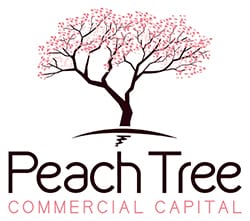The CARES Act has been a critical measure for small businesses as they have navigated the uncertain economic landscape stemming from COVID-19. The PPP and disaster relief loans provided by the government allowed businesses to remain staffed and operational as consumer behavior became based on reaction rather than preference, stockpiling emergency goods over personal choice.
The new year brings hope for a return to normalcy as vaccinations roll out quickly across the United States and around the globe. A side effect of this recovery, however, is the reduction in government aid that kept so many businesses solvent. Although these programs are anticipated to phase out in the coming months, the state of consumer spending is still uncertain, and we are entering a transitional phase between emergency funding and new market growth.
How to access the capital necessary to rev the engine of small to medium sized businesses across the country will be an ongoing concern for business owners no matter how quickly the economy recovers. When government programs do come to an end, businesses will have to find alternative funding to sustain themselves through the transition.
This article will explore those potential financing solutions and address how you can best apply them to grow your business.
Hard Money
The lending industry took a hit from COVID. Eligibility requirements tightened and essential lending products were shelved. A strengthening economy mitigates several concerns, but the return of services for ailing companies will be slow and staggered. For many small businesses in these circumstances, hard money loans may be the most appropriate solution.
Hard money loans are short-term, asset-backed loans. Financing terms are normally set around 12 months but can run over five years in some cases. These loans are offered by private investors rather than by traditional banks or credit unions.
Because hard money loans are secured by real estate or other tangible assets, lenders approve loans based on the value of the property instead of an individual’s credit-worthiness. Although borrowers may be denied conventional financing, those with poor credit or foreclosures on record can still receive hard money loans if they have equity in their property.
Due to the higher risk of these loans, you will also see higher interest rates. However, a hard money loan could be the best route if either of the following situations apply to you:
- You have poor credit, a foreclosure or short sale on record or you have not been in business long enough to qualify through a traditional lender.
- You need fast approval and disbursement. With the abrupt end of government assistance, hard money loans can pay out within 1-2 business days.
Factoring
To relieve the pressure on business partners down the supply chain during the pandemic, perhaps you have extended repayment periods or reduced interest and penalties on late payments to promote orders and encourage buyers to stock shelves. If you have a lot of open invoices and need a quick influx of cash, factoring may be a great option.
Factoring is used by small and medium-sized companies with value tied up in their accounts receivable. A financial provider, or factor, buys the customer debt and pays up to 80% of the invoice immediately. The owing customer has to pay back the factor, who assumes the risk of default. Upon final payment by your client, the factor remits the rest of the funds, minus their factoring fee. The credit-worthiness of the debtor may affect the fee structure of your agreement, as financiers charge more for riskier customers. Highly rated customers can lead to fees as low as 1-3%.
Factor financing is useful for companies that need to improve their cash flow. Rather than wait on customer payments to take advantage of business growth opportunities, factoring provides the immediate financing to boost operations and working capital.
With businesses moving to new lending institutions during the recovery, factoring provides the cash to get by as they pursue long-term financing options. Factoring is an ideal solution for new and small businesses as well as startups. In a post-COVID lending market, companies in distressed financial situations can take advantage of more lenient approval criteria as well.
Equipment Loans
COVID has changed the nature of business in several ways. While much of the world slowed down, technology innovations progressed rapidly. Information technology and hardware upgrades to facilitate working from home is a prime example.
Developing operational efficiency will play a major role in recovery. Capital investments and technology upgrades build that efficiency, fueling business growth, productivity and innovation. With equipment loans, businesses can optimize without disrupting their cash flow.
Equipment loans are available through alternative lenders and generally take longer for approval than hard money loans. However, they also carry much more favorable rates and longer available terms.
Real Estate Financing
Like equipment, real estate is an increasingly valuable acquisition and an important step for growing businesses. Real estate allows you to use your properties as a cash generator through sublets. Or, because you aren’t constrained by a lease, you can make modifications to suit your specifications.
With real estate financing, you can avoid the volatility of lease increases and restrictions set by a landlord. As we continue to progress through recovery, interest rates will be extremely desirable for a short period of time. If you have the financial stability to make the investment, expanding real estate can be highly profitable both short-term and long-term.
This is just a snapshot of some of the considerations for businesses as they find ways to finance product and service development. It is a time of rare opportunity and many of the avenues to inject capital and fuel growth will not last long.
If you are exploring financing options to succeed through the post-COVID economic recovery, contact our brokers today. We work closely with our clients to understand your specific financial needs and pair you with the right lenders and the perfect financing options. Our commitment is finding the best match for your immediate needs and long-term business goals.

